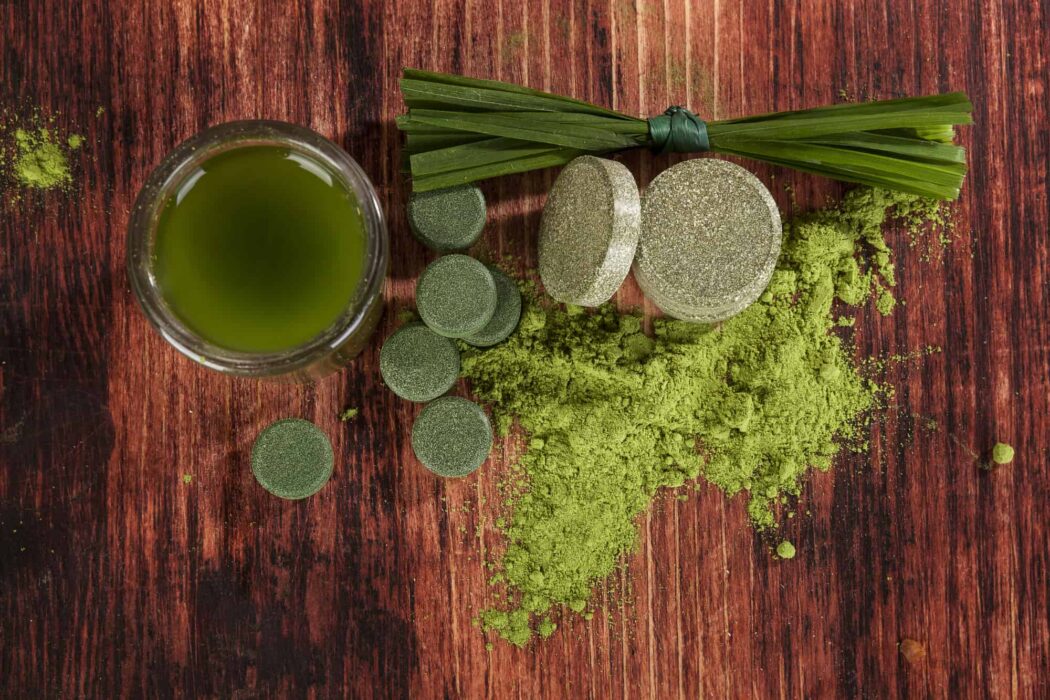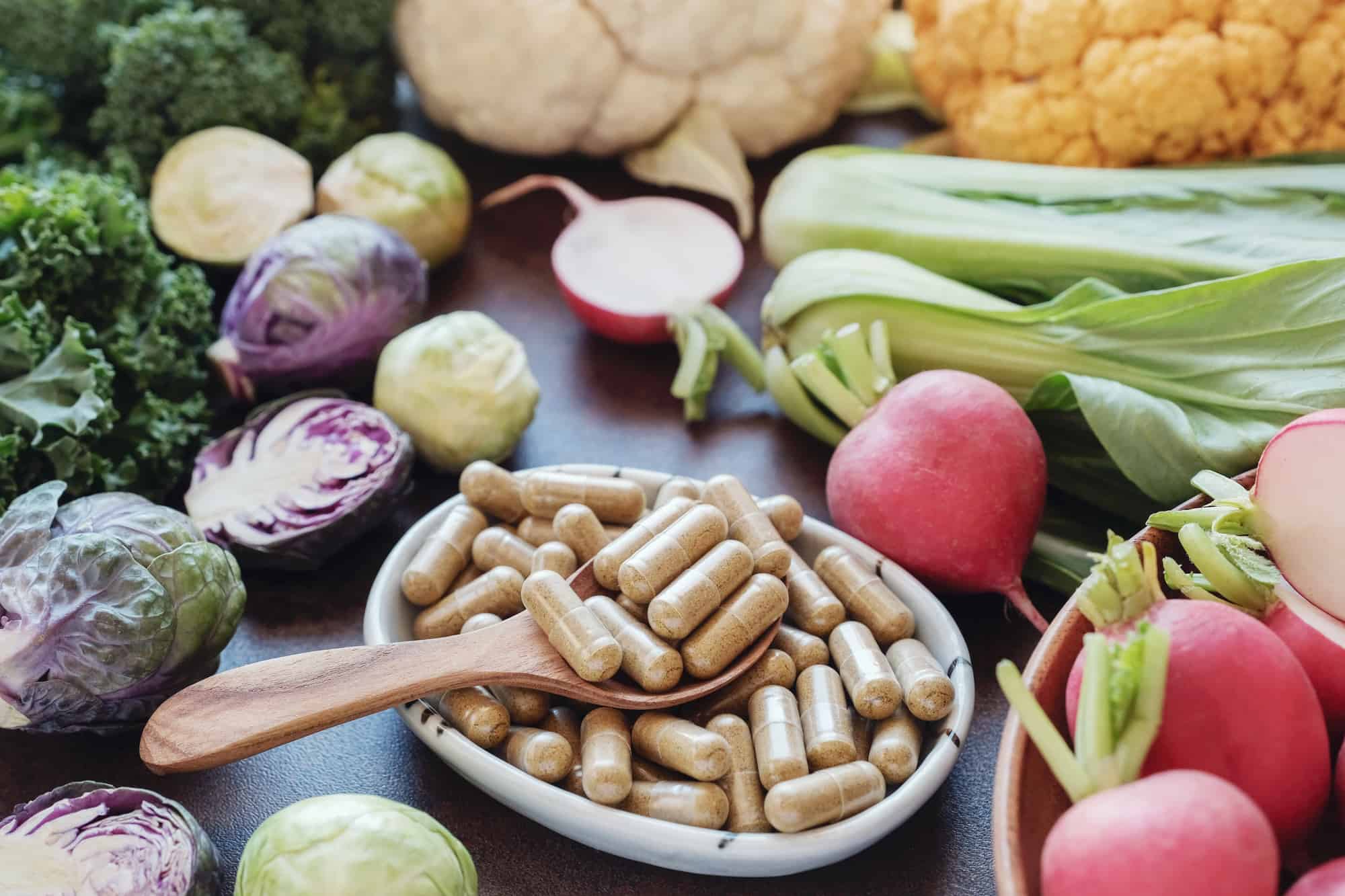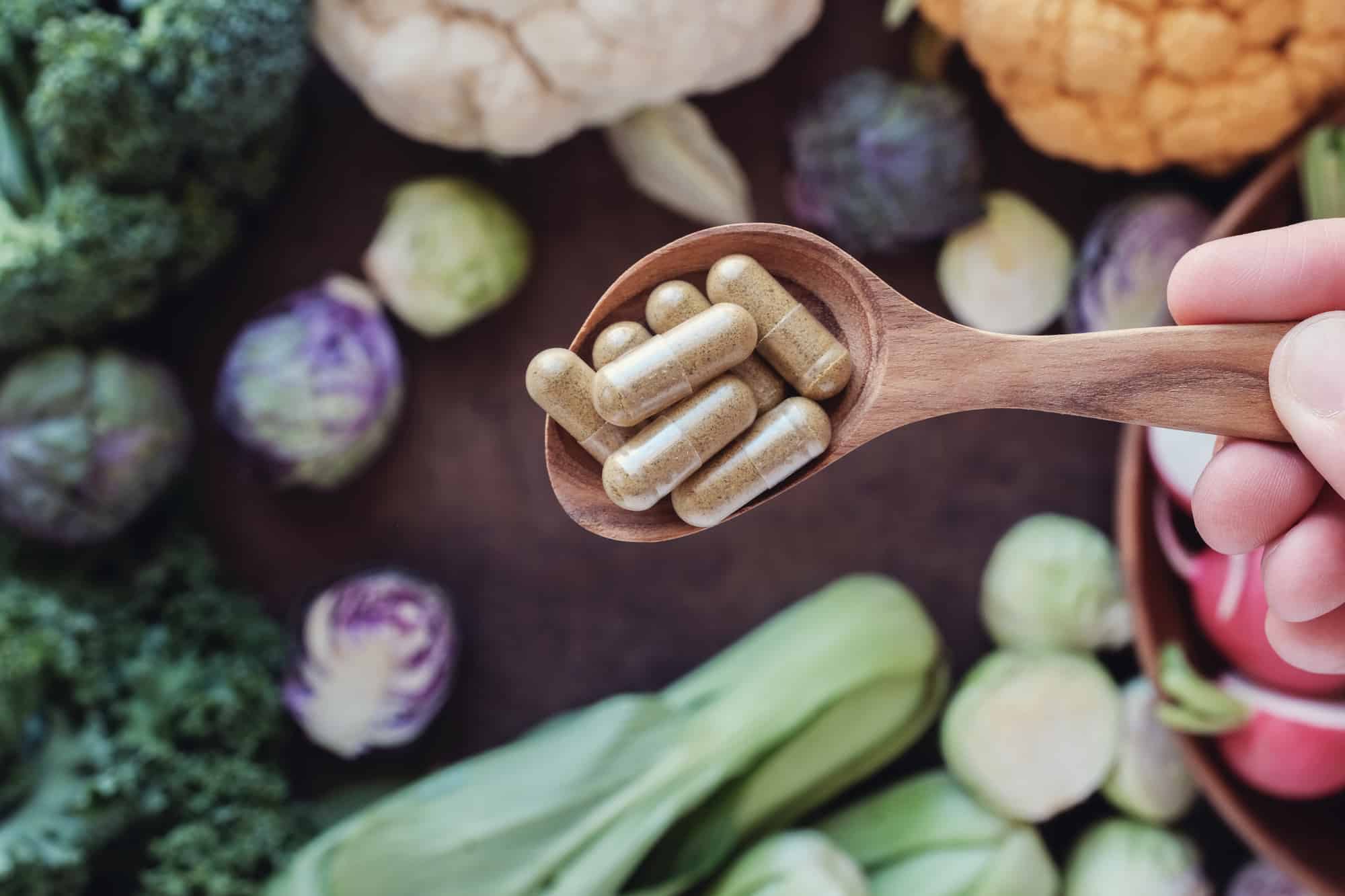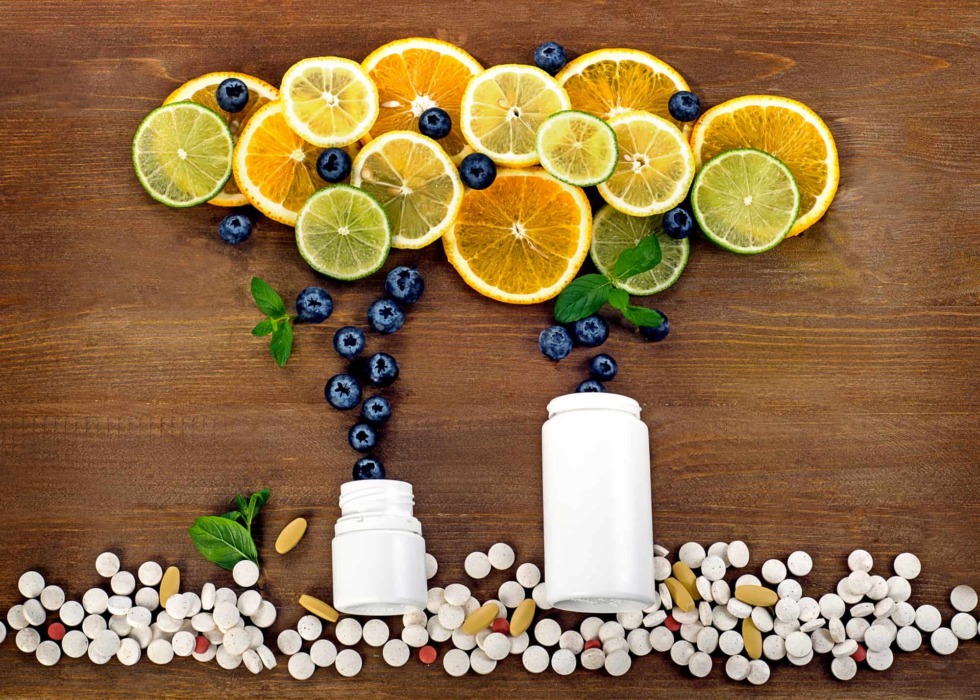Many people are familiar with nutritional supplements, which can be beneficial when adequately consumed. However, they are unlikely to give a positive result if you do not follow a healthy diet. Choosing natural and nutritious foods should always be a priority. So what about supplements on a keto diet?
If you’re just getting started with the keto diet, you might be wondering which vitamin and mineral supplements are best for a low-carb lifestyle.

This guide contains everything you need to know about keto’s most essential vitamins and minerals. You may decide to start taking them to support your body during keto-adaptation. But first, let’s figure out whether you need keto supplements at all. So, let’s find out all the details!
Do You Need Supplements on Keto?
In fact, during a balanced keto diet, you get all the elements that your body needs for healthy functioning. But what is a balanced keto? It is a varied menu that includes meat, fish, seafood, eggs, dairy, nuts, seeds, and many different vegetables. Healthy keto means you cook delicious and healthy meals instead of eating a keto burger on your way to work and snacking on nuts before your workout.
However, the current pace of life leaves little time and opportunity to cook healthy keto food every day. In this case, you may need some supplements to balance your body and keep it healthy [1].
You may also need keto supplements if you avoid any keto food for some reason. For example, if you’re vegan, lactose intolerant, or allergic to certain foods. If you’re new to keto and don’t have a balanced meal plan or are a keto athlete, you should consider supplements from the list below.
The Best Keto Supplements
Collagen
Collagen is the basis of the connective tissue of all organs. It plays a vital role in forming shapes and structures of cells and maintaining connections between them. Collagen is the main protein, and in the human body, its content reaches 30% of all proteins. It is also the protein found in every organ: lungs, heart, liver, eyes, kidneys, blood vessels, and bones.
The main functions of collagen include [2]:
- cellular regeneration;
- elasticity and strength of tissues;
- creating and strengthening organ shapes;
- stimulating cell membranes’ formation.
Disruption of collagen production negatively affects the digestion process, as it strengthens the mucous membrane of the digestive tract. This function is essential. Changes in the intestinal barrier function (for example, leaky gut syndrome) can make partially digested food molecules enter the bloodstream and cause inflammatory and allergic reactions.
One of the signs of a collagen lack in the body is the fragility of the bones. That’s why an additional collagen intake will help make the bones stronger.
Joints experience similar problems. Collagen, being a structural protein, binds together glucosamine and chondroitin, the building blocks of cartilage. A decreased amount of collagen reduces the regenerative capacity of the joints. As a result, the cartilage thins and weakens, and the likelihood of arthrosis increases.
This protein is a connective tissue that stabilizes the skin’s structure and protects cells from aging. Collagen supplements have many benefits, from reducing facial wrinkles to decreasing cellulite [3]. When following a keto diet for weight loss, consider taking collagen to support skin health. I recommend taking at least 3000-5000 mg of collagen per day. In addition, consider taking 1,000–2,000 mg of vitamin C to improve collagen production.

Electrolytes
A common problem with the ketogenic diet is electrolyte fluctuations. If you don’t drink enough fluids, you can quickly become dehydrated. It leads to decreased mineral levels. Therefore, it is essential to drink enough water.
When it comes to minerals, the three main ones on a low-carb diet are sodium, potassium, and magnesium. These are electrolytes that the body needs to control blood pressure and keep nerves and muscles functioning correctly. Unfortunately, during the first few weeks of the keto diet, you lose a lot of water [4]. It is because carbs intake is reduced, and the amount of fat in the diet increases. It causes the body to remove water and electrolytes.
Magnesium
It supports healthy bone growth, normalizes heart rate, regulates blood pressure. Magnesium also lowers blood sugar levels, prevents muscle cramps, and reduces joint pain [5]. In addition, acting in combination with calcium, it can increase bone mineral density.
Sodium
The primary goal of sodium is to maintain the water-salt balance in the body cells [6]. Your body needs sodium to normalize neuromuscular activity and kidney function. In addition, it keeps minerals in the blood in a soluble state. Sodium is essential for the absorption of glucose by the kidneys and intestines and the transport of other nutrients through the cell membrane. Besides, it is also involved in maintaining the acid-base balance in the body.
Potassium
It plays a role in the functioning of the nervous system, muscle contraction, and maintaining the body’s water balance. Firstly, potassium supports normal blood pressure and blood sugar in many biochemical reactions that provide human life [7]. Secondly, it affects the functioning of many cells in the body, especially nerve and muscle ones. Potassium supports mental clarity and increases the oxygen supply to the brain. It also helps your body get rid of toxins, acts as an immune modulator, helps lower blood pressure, and treats a variety of allergies.
How Long Does it Take to Enter Ketosis? 9 Tips to Do it Quickly
It is vital to replenish electrolytes in order not only to maintain health but also to prevent any side effects of the keto diet. Besides, those who regularly exercise and sweat are most at risk of falling electrolyte levels. Therefore, you should use powders with electrolytes to make up for their loss.
Exogenous Ketones
When you avoid carbs in your diet, you need to get energy from alternative sources. Once the body has completely depleted its glycogen stores, it begins to break down fatty acids in the liver to produce ketone bodies.
Your liver produces three types of ketone bodies:
- acetone;
- acetoacetate;
- beta-hydroxybutyrate.
In fact, beta-hydroxybutyrate is not a ketone body. It contains a reactive OH group instead of double-bond oxygen like other ketones. But it acts like a ketone and is most actively used by the body for energy production and the breakdown of fats [8]. Endogenous ketones are produced by the liver from fatty acids, while exogenous ketones can be obtained from supplements. Regardless of the type of exogenous ketone supplements, they all contain beta-hydroxybutyrate.
There are 2 different types of exogenous ketones:
- Ketone salts are natural beta-hydroxybutyrate, which is combined with salts: sodium, potassium, or calcium.
- Ketone esters are synthetic substances that also contain pure beta-hydroxybutyrate. They can raise ketone levels much more effectively. However, they can be poorly tolerated and cause gastrointestinal upset.
Exogenous ketones give you appetite suppression, reduced keto flu symptoms, and weight control. As a result, they are an effective way to start ketosis. In addition, they can suppress appetite, and lower triglyceride and glucose levels. However, taking these supplements does not eliminate the need to limit the intake of simple carbs on keto.
I recommend that you only use exogenous ketones to start your keto diet. When you avoid carbs, this situation forces the body to obtain energy from other sources, activating the ketosis function. Once all glycogen stores are depleted, your body turns to fat stores to begin producing ketones. Therefore, for weight loss, ketones must come from your body’s stores, not exogenous ketones.

Greens Powder
Although many believe otherwise, the keto diet has enough green leafy vegetables. They are rich in complex carbs, fiber, and plant-based antioxidants called phytonutrients.
Phytonutrients
They allow the body to cope with inflammatory processes and withstand the harmful effects of external factors. However, every day, the human body struggles with oxidative reactions.
As a result of this process, free radicals are formed. They are a direct threat to your health. They can harm cells and their components, changing the composition of proteins and DNA. In turn, it can lead to pathologies, mutations, and serious diseases. Natural antioxidants protect the body from such threats [9]. They improve enzymes that help the body get rid of toxins and support the immune system. Besides, phytonutrients maintain cardiovascular health, improve estrogen metabolism, and promote cancer cell death.
Fiber
Fiber is a complex carb found in plant foods. The body does not digest it, but intestinal bacteria use it to perform several functions. There are two types of fiber – soluble and insoluble. Almost all plants contain both species but in different proportions. Our bodies need both.
When combined with water, soluble fiber acquires a viscous gel-like consistency. It helps food pass through the intestines and has a positive effect on many processes in the body. For example, it helps regulate appetite and improves digestion [10]. Fiber also lowers blood sugar and cholesterol levels and supports a healthy gut microbiota.
6 Keto Food Cravings and High-Fat Alternatives
Insoluble fiber is an enzyme-resistant fiber that passes through the body almost unchanged, helping to form feces. It stimulates the intestinal walls to secrete mucus and fluid. In addition, the fibers absorb water to form healthy stools, and the extra mucus helps move them through the intestines and out of the body.

It is crucial to consume enough phytonutrients and fiber. However, this can sometimes be difficult to achieve only with food on a keto diet. That’s why you may find it helpful to use green powders. Many green drinks contain wheat germ, broccoli or kale powder, chlorella, and other vegetables. You can add them to your keto smoothies to increase your intake of fiber and phytonutrients.
Antioxidants
Antioxidants are molecules that can prevent some dangerous reactions in the body triggered by free radicals. They act as a natural shield for the body. The main antioxidants found in foods are polyphenols, carotenoids, and some vitamins and minerals.
The primary function of antioxidants is to help the body protect against free radicals. The cells in our body produce these molecules naturally. But their number can increase due to environmental factors (pollution, smoking, poor diet, etc.).
If too many of them are synthesized in places where it is not needed, free radicals can damage cells. They also damage DNA and cell proteins. As a result, it can cause the development of certain diseases and accelerate the aging process. For example, it can be the aging of the skin and internal organs. That is why it is so essential that antioxidants enter the body every day and help it strengthen its natural defenses [11].
In addition, some people are at higher risk of poor antioxidants intake and in case of oxidative stress. For example, it applies to women during menopause, the elderly, overweight people, and smokers. So if you are overweight and want to get rid of it with a keto diet, you should help your body by taking antioxidants.
Antioxidants help your body get rid of toxins, slow down the whole body’s aging process, and prevent some diseases. They also help lower cholesterol and excess sugar levels, reducing the risk of cardiovascular disease. As a result, antioxidants are your protection against environmental influences and other dangerous elements consumed with food.
Omega-3 Fatty Acids
Omega-3 fatty acids are essential nutrients that the body cannot produce on its own. Therefore, you have to consume them regularly. They can help support heart and brain health and reduce inflammation. Fatty acids can also help prevent problems associated with brain dysfunction, such as depression or dementia.
Omega-3s activate the production of hormones involved in all cellular biochemical processes. They lower the level of bad cholesterol and reduce the risk of developing cardiovascular diseases. In addition, fatty acids can suppress the feeling of hunger, reduce appetite, and form membranes of brain neurons and retina. They deliver oxygen to tissues and cells and participate in hormones’ metabolic processes, reducing stress. They also support joint mobility, prevent inflammation, improve attention, memory and strengthen the immune system [12].
Most people need supplemental Omega-3 unless they eat massive amounts of vegetables and wild fatty fish daily. The ketogenic diet is high in fat, and it’s important to eat healthy fats. Omega-3 fatty acids can help ensure you get enough healthy fats in your diet. There are also alternative sources of Omega-3s for vegans on keto. One of them is flaxseed oil and other valuable oils containing a healthy balance of Omega-3 and Omega-6.

Enzymes, Probiotics, and Prebiotics
During the transition to ketosis, the digestive system undergoes various changes. Therefore, during keto-adaptation, it is essential to support the intestinal microflora and the digestive system. You can support your body with digestive supplements, and they will help you avoid discomfort when you change your diet.
Enzymes
Enzymes are biologically active proteins present in all cells of the human body. They are responsible for the formation and destruction of molecules and chemical bonds. There are 2 types of enzymes: digestive and metabolic. The digestive system produces enzymes of the first type. They are designed to break down the food that enters the body and use the nutrients necessary for energy. Enzymes of the second type are necessary for the functioning of cells and maintaining overall health [13].
Today, almost 35% of adults in the United States have problems with digestion. Their digestive organs do not produce enough active enzymes, or they need help to do it. Enzyme supplements can help relieve symptoms by helping digest food and preventing bloating, heartburn, etc. In addition, they improve intestinal microflora and help to fight constipation.
The Ultimate Guide to Keto Diet: Foods to Eat and to Avoid
Probiotics and Prebiotics
These supplements are often confused due to their similar names and use. However, these are different biological structures. Each of them has an individual principle of function and indications for use. A common property for them is a positive effect on the human body by normalizing the intestinal microflora [14]. In general, their therapeutic effects are complementary but not identical. They both are usually prescribed as part of the complex treatment of intestinal diseases accompanied by dysbacteriosis.
The critical difference is that probiotics are live microorganisms, while all prebiotics are organic chemical compounds. And the former is needed to “populate” the intestines with good microflora, and the latter to “feed” the already existing good bacteria.
Prebiotics are bioactive substances that contribute to the creation and maintenance of normal intestinal microflora and its effective functioning. The primary value of prebiotics for human health is their targeted action. Feeding the microflora necessary for the healthy functioning of the intestines. They also interfere with the reproduction of pathogenic bacteria.
Probiotics are beneficial bacteria that live in the intestines and maintain normal microflora. They help digest food and fight harmful bacteria, including Helicobacter pylori, which causes bloating, stomach ulcers, and gastritis. Learn more about gut health on keto in our detailed post.

Vitamin D
Vitamin D deficiency is one of the most common nutritional deficiencies globally. It also affects those who follow a ketogenic diet. Low blood levels of vitamin D are associated with an increased risk of osteoporosis, heart attack, and stroke.
Vitamin D is actually a group of biologically active substances, including D2 and D3 vitamins. Vitamin D3 is synthesized under sun rays in the skin and enters the human body with food. In turn, vitamin D2 comes exclusively from food. The primary function of vitamins D2 and D3 is to ensure the absorption of calcium and phosphorus from food in the small intestine.
In addition, vitamin D regulates many processes in your body. It is responsible for the blood levels of essential minerals like phosphorus and calcium [15]. They support health and strengthen musculoskeletal tissue (muscles, bones, joints, tendons, and teeth). Calcium intake cannot guarantee its supply directly to the bone tissue. Without magnesium and vitamin D, it can be stored in the walls of blood vessels or atherosclerotic plaques, thereby provoking cardiovascular disorders.
Vitamin D is vital for the musculoskeletal system. In addition, it controls the functioning of the immune, cardiovascular, endocrine, digestive, hormonal, and nervous systems. In particular, it maintains the level of immunity, and acts as a hormone that regulates carbs metabolism. That is, it is directly related to weight loss issues. It means that vitamin D is needed for proper metabolism and healthy body weight on a keto diet. Also, it has anti-inflammatory, antitumor, and immunomodulatory effects. It slows down the aging process and fills your body with energy.
Folate Supplements
Folate is one of the B vitamins responsible for many processes in your body. We usually get folate from complex carbs. But unfortunately, the keto diet restricts complex carbs, and therefore you may not be getting enough folate. Generally, folate works well with vitamin B6, which is found in high amounts in meat, fish, and eggs. Therefore, you should supplement your keto diet with folate to get the full range of vitamins.
Folic acid is a synthetic version of folate, which belongs to the group of vitamins B (B9). It is an essential element of the human body. Simply put, along with other B vitamins and minerals (zinc, magnesium), folate is actively involved in vital biochemical processes [16].
The main benefits of folate include:
- maintaining the integrity of cell membranes;
- cell division;
- synthesis of red and white blood cells;
- detoxification;
- hormone balance;
- conversion of carbs into energy;
- support for nerve fibers;
- mental health.
Vitamin B9 starts the growth of new cells in the human body and maintains the integrity of DNA. Failures of these processes are fraught with the growth of tumors, so B9 can prevent cancer. This vitamin is also very important for blood formation.
Our immune, cardiovascular systems, and metabolism need folic acid since it directly affects the synthesis of amino acids. It strengthens blood vessels and contributes to the normal functioning of the heart. In addition, folic acid is needed for a healthy nervous system. Therefore, our mood, concentration, and performance depend on it.

MCT Oil
It is a unique type of oil containing pure medium-chain triglycerides. MCTs are fats that your body uses more easily than other fats. Manufacturers extract MCTs from coconut or palm oil, and doctors prescribe them to treat digestive disorders, seizures, and many other diseases. Unlike other fats, MCT goes directly to the liver rather than is stored in fat tissue. This oil activates the brain’s work, helps control weight, and speeds up metabolism [17]. It normalizes bowel function and increases efficiency.
However, in the keto world, MCT oils are used as supplements with the following benefits:
- production of more ketones;
- help with weight loss;
- providing the body with energy;
- lowering cholesterol and blood sugar levels;
- appetite control.
Your body prefers using MCTs for energy and ketone production over fat storage. MCT does not require digestive enzymes or bile. Instead, they go directly to the liver from the small intestine to provide immediate energy in the form of fatty acids or ketones.
Carnivore FAQ: Health & Supplements
MCT oils can be pretty important for weight loss and quick entry into ketosis at the start of your diet. So you can try MCT oil to get more energy and keep calories from being stored as fat. MCT oil can be consumed in its pure form, added to smoothies or bulletproof coffee.
Multivitamin Supplements
Last but not least, I want to talk about multivitamins. We have already discussed the main keto diet supplements. So you can be sure that they will satisfy your primary needs in the absence of carbs. However, do you need them on keto? A quality multivitamin supplement will help your body get all the nutrients it needs on a ketogenic diet while avoiding certain food groups. It is especially true because of the complete restriction of cereals rich in various vitamins of group B, A, etc.
However, you should understand that when using multivitamin supplements, you use synthetic substances [18]. It is better if you pick healthy natural foods. A multivitamin is not a magic pill that allows you to eat processed snacks and healthy foods. Also, you should remember that the wrong multivitamin or wrong dosage can be ineffective or even dangerous.
Therefore, if we are talking about healthy keto, then instead of artificial multivitamin supplements, you better opt for natural food. If you cannot eat healthy and varied foods on a keto diet, check with your doctor about the correct form and dosage of multivitamins. In conclusion, a well-chosen multivitamin will help you fill all the gaps in your nutrition and get the full spectrum of the correct elements.

Conclusion
So, I have told you about the main keto supplements. You can take all of them or choose the most necessary for maintaining health during a keto diet. However, I want to remind you that a healthy keto diet full of different food groups and varied meals contains most of the elements you need. You should consult your doctor and possibly do some tests before taking any supplements.
It is an essential list of keto supplements. Yet, it may change based on your eating habits, sports routine, dietary experience, or medical conditions. So choose wisely and enjoy your healthy keto story!
Sources:
-
Harvey CJDC, Schofield GM, Williden M. The use of nutritional supplements to induce ketosis and reduce symptoms associated with keto-induction: a narrative review. PeerJ. 2018;6:e4488. Published 2018 Mar 16. doi:10.7717/peerj.4488
-
Lin P, Hua N, Hsu YC, et al. Oral Collagen Drink for Antiaging: Antioxidation, Facilitation of the Increase of Collagen Synthesis, and Improvement of Protein Folding and DNA Repair in Human Skin Fibroblasts. Oxid Med Cell Longev. 2020;2020:8031795. Published 2020 May 11. doi:10.1155/2020/8031795
-
Lupu MA, Gradisteanu Pircalabioru G, Chifiriuc MC, Albulescu R, Tanase C. Beneficial effects of food supplements based on hydrolyzed collagen for skin care (Review). Exp Ther Med. 2020;20(1):12-17. doi:10.3892/etm.2019.8342
-
Rabast U, Vornberger KH, Ehl M. Loss of weight, sodium and water in obese persons consuming a high- or low-carbohydrate diet. Ann Nutr Metab. 1981;25(6):341-9. doi: 10.1159/000176515. PMID: 7332312.
-
Al Alawi AM, Majoni SW, Falhammar H. Magnesium and Human Health: Perspectives and Research Directions. Int J Endocrinol. 2018;2018:9041694. Published 2018 Apr 16. doi:10.1155/2018/9041694
-
Farquhar WB, Edwards DG, Jurkovitz CT, Weintraub WS. Dietary sodium and health: more than just blood pressure. J Am Coll Cardiol. 2015;65(10):1042-1050. doi:10.1016/j.jacc.2014.12.039
-
Stone MS, Martyn L, Weaver CM. Potassium Intake, Bioavailability, Hypertension, and Glucose Control. Nutrients. 2016;8(7):444. Published 2016 Jul 22. doi:10.3390/nu8070444
-
Stubbs BJ, Cox PJ, Evans RD, et al. On the Metabolism of Exogenous Ketones in Humans. Front Physiol. 2017;8:848. Published 2017 Oct 30. doi:10.3389/fphys.2017.00848
-
Leitzmann C. Characteristics and Health Benefits of Phytochemicals. Forsch Komplementmed. 2016;23(2):69-74. doi: 10.1159/000444063. Epub 2016 Feb 4. PMID: 27160996.
-
Lattimer JM, Haub MD. Effects of dietary fiber and its components on metabolic health. Nutrients. 2010;2(12):1266-1289. doi:10.3390/nu2121266
-
Lobo V, Patil A, Phatak A, Chandra N. Free radicals, antioxidants and functional foods: Impact on human health. Pharmacogn Rev. 2010;4(8):118-126. doi:10.4103/0973-7847.70902
-
Shahidi F, Ambigaipalan P. Omega-3 Polyunsaturated Fatty Acids and Their Health Benefits. Annu Rev Food Sci Technol. 2018 Mar 25;9:345-381. doi: 10.1146/annurev-food-111317-095850. PMID: 29350557.
-
Cooper GM. The Cell: A Molecular Approach. 2nd edition. Sunderland (MA): Sinauer Associates; 2000. The Central Role of Enzymes as Biological Catalysts.Available from: https://www.ncbi.nlm.nih.gov/books/NBK9921/
-
Sanders ME, Merenstein DJ, Reid G, Gibson GR, Rastall RA. Probiotics and prebiotics in intestinal health and disease: from biology to the clinic. Nat Rev Gastroenterol Hepatol. 2019 Oct;16(10):605-616. doi: 10.1038/s41575-019-0173-3. Epub 2019 Jul 11.
-
Institute of Medicine (US) Committee to Review Dietary Reference Intakes for Vitamin D and Calcium; Ross AC, Taylor CL, Yaktine AL, et al., editors. Dietary Reference Intakes for Calcium and Vitamin D. Washington (DC): National Academies Press (US); 2011. 3, Overview of Vitamin D.Available from: https://www.ncbi.nlm.nih.gov/books/NBK56061/
-
Khan KM, Jialal I. Folic Acid Deficiency. [Updated 2021 Sep 28]. In: StatPearls [Internet]. Treasure Island (FL): StatPearls Publishing; 2022 Jan-. Available from: https://www.ncbi.nlm.nih.gov/books/NBK535377/
-
St-Onge MP, Bosarge A. Weight-loss diet that includes consumption of medium-chain triacylglycerol oil leads to a greater rate of weight and fat mass loss than does olive oil. Am J Clin Nutr. 2008;87(3):621-626. doi:10.1093/ajcn/87.3.621
-
Kamangar F, Emadi A. Vitamin and mineral supplements: do we really need them? Int J Prev Med. 2012 Mar;3(3):221-6. PMID: 22448315; PMCID: PMC3309636.